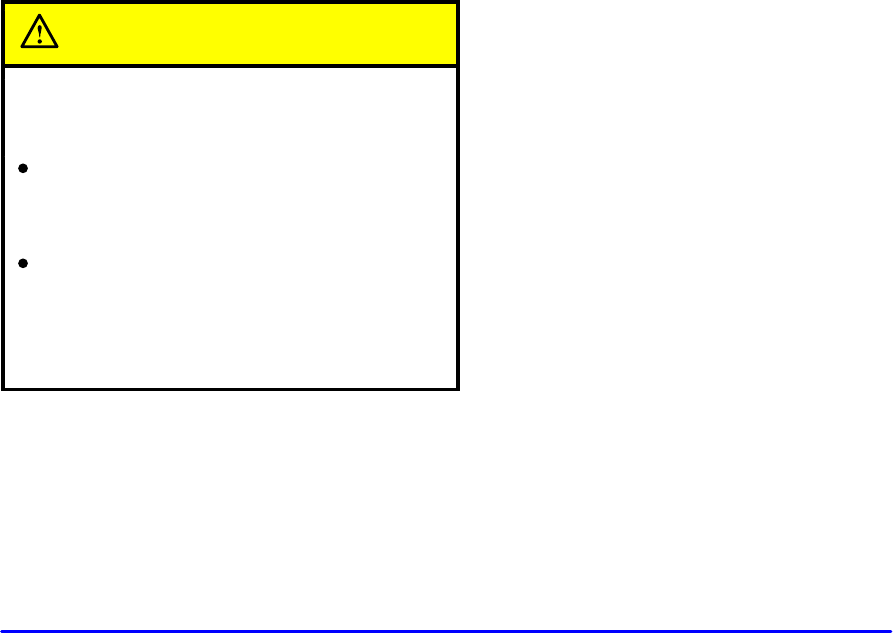
6-3
CAUTION:
You can be injured and your vehicle could be
damaged if you try to do service work on a
vehicle without knowing enough about it.
Be sure you have sufficient knowledge,
experience, the proper replacement parts
and tools before you attempt any vehicle
maintenance task.
Be sure to use the proper nuts, bolts and
other fasteners. “English” and “metric”
fasteners can be easily confused. If you use
the wrong fasteners, parts can later break
or fall off. You could be hurt.
Adding Equipment to the Outside of
Your Vehicle
Things you might add to the outside of your vehicle can
affect the airflow around it. This may cause wind noise
and affect windshield washer performance. Check with
your dealer before adding equipment to the outside of
your vehicle.
Fuel
The 8th digit of your vehicle identification number
(VIN) shows the code letter or number that identifies
your engine. You will find the VIN at the top left of the
instrument panel. See “Vehicle Identification Number”
in the Index.
Gasoline Octane
If your vehicle has the 3800 V6 engine (VIN Code K),
use regular unleaded gasoline with a posted octane of 87
or higher. If the octane is less than 87, you may get a
heavy knocking noise when you drive. If it is bad
enough, it can damage your engine. A little pinging
noise when you accelerate or drive uphill is considered
normal. This does not indicate a problem exists or that
a higher
-octane fuel is necessary.
If your vehicle has the 3800 Supercharged V6 engine
(VIN Code1), use only premium unleaded gasoline with
a posted octane of 91 or higher. In an emergency, you
may be able to use a lower octane -- as low as 87 -- if
heavy knocking does not occur. Refill your tank with
premium fuel as soon as possible. If you are using
91 octane or higher
-octane fuel and you hear heavy
knocking, your engine needs service.


















